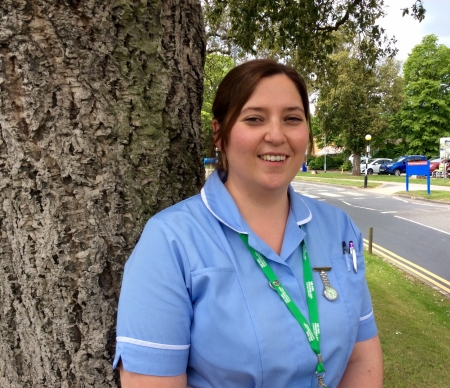
Last year a group of Macmillan Cancer Support Workers met for the first time as an opportunity to offer peer to peer support, just two weeks before the first national lockdown.
One year on and we find ourselves in a new world; not only is it startling to think about 34 professionals in one meeting room, but we could never have imagined how cancer care and support would change overnight only a couple of weeks later.
Last month, The Macmillan Living With and Beyond Cancer Programme, a five year programme of work aiming to improve personalised cancer care and support, hosted the second Macmillan Cancer Support Workers' Forum to reflect on their experiences of providing support during an international pandemic over the past year.
The Macmillan programme, in partnership with the NHS, has a total of 43 Cancer Support Workers in post across South and Mid Yorkshire, Bassetlaw and North Derbyshire, the total Macmillan investment in the roles is over £2.5 million.
Cancer Support Workers support the emotional, financial and psychological impacts of a cancer diagnosis, as well as helping patients and their loved ones navigate the health and social care system. An example of this could include communicating test results, coordinating appointments, talking through any concerns and signposting people to support that suits their needs.
The Cancer Support Worker Forum, hosted online in early February 2021, included a broad range of professionals with varying degrees of experience in their roles, some working in hospital settings, others based in the community – they all came together to talk about the ways in which their work practices have changed and how they were able to continue providing vital cancer support.
Richard Metcalfe, is the Macmillan Programme Lead, he wanted to bring the professionals together and understand some of the challenges the pandemic has posed, he said:
“Despite the pressures that everyone is still under it is important that we take time to put our heads up and reflect on our experiences of the last year, I’m so grateful to everyone that took time out to contribute to the Forum.
“ A theme that came up repeatedly was the huge mental and emotional strain the past year has put on patients and professional alike. We talked about the importance of peer support and the ways this is happening across the region.
“ The Cancer Support Workers discussed resilience and the ability to quickly adapt to changing circumstances. As well as our physical spaces, the professionals talked about having to adapt to how they talk to patients, highlighting the challenges posed by having meaningful conversations online or over the telephone.
“I came away from the Forum feeling energised by the ongoing commitment of everyone present.”
The coronavirus pandemic and the restrictions in place has meant that much of the non-clinical cancer care and support offered to patients has moved online. Despite best efforts professionals highlighted how this has been one of the biggest challenges of providing care during the pandemic. Access to technology is widening health inequalities as many patients simply do not have the tools to participate, Danielle Thomas is the Macmillan Cancer Support Worker with the breast cancer team in Rotherham, she said:
“The past year has been incredibly difficult for cancer patients, a diagnosis of cancer is devastating for people but an international pandemic on top of this has added worry and anxiety, we’ve been providing much more emotional support over the past year.
“Despite having a strong online support offer, we found that for many people they were completely out of the question. The pandemic has highlighted healthcare inequalities in terms of people’s access to technology, that has been a massive challenge for us in the last year.”
The five-year Macmillan Living With and Beyond Cancer Programme is concluding it’s findings in Spring 2021 and the final evaluation points to the huge benefits of having Cancer Support Workers in post. The positive effects of the role are having an impact across the organisations they work in. Clinical Nurse Specialists, the primary contact for patients diagnosed with cancer, report improvements in workload, stress and job satisfaction because of the additional support. The nurses also report having more time to concentrate on more clinically complex patients.
The final Macmillan evaluation report found that Cancer Support Workers saved over two hours per day of nurses’ time, up to four days every fortnight, this equates to almost 96 days per year of time saved for the cancer teams. Richard Metcalfe continues:
“In the past year there has never been a worse time to receive a cancer diagnosis.
“The importance and value of the Cancer Support Workers was talked about pre-pandemic but the extent to which professionals across the region have stepped up to the challenge and smoothed patients’ experiences of cancer care at a particularly worrying and stressful time has been extraordinary.
“It’s clear that there’s a long road to “normal” ahead but the Cancer Support Workers’ expertise and commitment has gone a long way in embedding personalised cancer care and support as “business as usual” across the region.”
Find out more about the Macmillan Living With and Beyond Programme.
Watch the Macmillan Living With and Beyond Cancer Programme films on Vimeo.
Anyone living with cancer and struggling can call the Macmillan Support Line on 0808 808 00 00 seven days a week or visit macmillan.org.uk.
